CSDE Welcomes 5 New External Affiliates
|
Joining CSDE as external affiliates are five colleagues from across the country. Many are collaborating with CSDE affiliates or live in the region and eager to connect with our community. Holly Hummer’s (Sociology, Harvard University) research is broadly focused on the mechanisms shaping individuals’ family and employment pathways and on how these pathways play into broader demographic and social patterns. Hilary Schwandt’s (Professor, Western Washington University) main area of research interest is reproductive health, her dissertation was on unsafe abortion in Ghana and included a qualitative study on the pathways to abortion, a comparison of incomplete pregnancy patients and a randomized, noninferiority trial of group vs individual family planning counseling. Elizabeth Hirsh’s (Professor, University of British Columbia) work focuses on employment discrimination and the policies and practices that minimize bias. Elizabeth Korver-Glenn (Assistant Professor, University of North Carolina Chapel Hill) speaks about many things related to racism, White supremacy, markets, or urban/neighborhood inequality. Ahmed Abdeen Hamed’s (Assistant Teaching Professor, Northeastern University & Head of Clinical Data Science/Network Medicine & AI at the Sano Centre for Computational Medicine and Personalized Health) primary research objectives revolve around addressing intricate challenges in clinical data science and network medicine, deploying computational solutions to advance the understanding of complex diseases, such as cancer, from clinical, genetic, and pharmaceutical standpoints. Learn more about each affiliate in the full story!
(read more) |
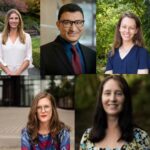 |
Curran Delivers Samuel E. Kelly Distinguished Faculty Lecture
|
On October 17, 2024, CSDE Director Sara Curran was honored to give the Samuel E. Kelly Distinguished Faculty Lecture entitled “Past, Present, and Future Demographic Diversity in the U.S. and Washington.” The talk was hosted by the Samuel E. Kelly Ethnic Cultural Center. Curran was introduced by CSDE Trainees Courtney Allen and CSDE alumna Dr. Aasli Nur. In the talk, Curran discussed the idea of “to be counted is to be seen”, which is often taken for granted as foundational for democracy. The lecture discussed past and present ways in which demographic diversity has been measured and why, and also the intersectional complexities of measuring demographic diversity. Curran presents the history, politics, and statistics of changing demographic diversity in the U.S. and in Washington State, providing some perspectives on the implications of those dynamics. Dr. Curran also discussed some of the upcoming changes for observing demographic diversity in the future. You can view the lecture here.
(read more)
|
 |
Balderas Guzmán and Casey to Speak at Student-Led Symposium on Climate Change and Urban Planning
|
On November 6th, CSDE Affiliates Celina Balderas Guzmán (Landscape Architecture) and Joan Casey (Public Health) will participate in panels at a student-led symposium hosted by the Interdisciplinary PhD Program in Urban Design and Planning. The 2024 Annual Symposium is organized around the theme “Planning for a Changing Climate: Key Considerations.” Casey will participate in a panel discussion entitled “Climate Impact on Human and Ecological Well-being” and Balderas Guzmán will participate in a panel discussion entitled “Building Climate Resilience and Mitigation.” Read more about the event and register here.
(read more) |
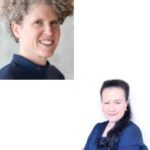 |
Berney, Hall, and Mooney Co-Author Study on Mobility Justice
|
Three CSDE Affiliates contributed to an article that was recently published in Health Equity. The article, entitled “Advancing Active Transportation Through Mobility Justice and Centering Community,” reports on a community-academic-policy partnership in which multiple stakeholder groups collaborated to identify opportunities for increasing non-motorized transportation and public transit access in South Seattle. Participatory research methods including interviews, photovoice, and mobility audits were used during the course of the study. Read the full article here.
(read more) |
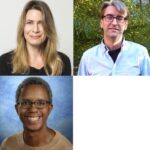 |
Chan Cited in Article on the Chinese Hukou System
|
CSDE Affiliate Kam Wing Chan (Geography) was cited in a recent Outlook article on the Chinese Hukou System and comparative analysis with India’s caste-based reservations. In the article, which references Chan’s recent work “Internal Migration in China: Integrating Migration with Urbanization Policies and Hukou Reform (Policy Note 16),” the author explains how Chan’s analysis highlights the Hukou System’s linkages to specific localities and related implications. Read the full article here and the full policy brief here.
(read more) |
 |
Stovel Quoted in Atlantic Article on Friendship and Loneliness
|
CSDE Affiliate Katherine Stovel (Sociology) was quoted in a recent Atlantic article entitled “Americans Are Hoarding Their Friends.” The article quotes Stovel’s analysis of “catalyst brokers” who help build connections between their friends, and explores the costs and benefits of this behavior. Read the full article here.
(read more) |
 |
Zumeta Publishes Article on Changing Public Attitudes Towards Higher Education
|
CSDE Affiliate William Zumeta (Evans School Professor Emeritus) recently authored an article entitled “Old patterns and new tensions in U.S. higher education finance,” in Annali di Storia Delle Universita Italiane. The article focuses on the changes in public attitudes toward – and governmental support of – higher education in the U.S., focusing primarily on the last 40 years. The post-1980 period is set within the longer-term historical context of American federalism in higher education policy and finance.
(read more) |
 |
Fowle and Fyall Co-Author Study on Evictions During the Pandemic
|
|
*New* IPUMS Health Survey Data Update
|
The IPUMS Medical Expenditure Panel Survey (MEPS) recently announced a new data release. IPUMS now includes 2022 data released by the Agency for Healthcare Research and Quality (AHRQ) earlier this year. This initial release updates over 1,100 variables from the Full Year Consolidated, Condition, Event, Prescribed Medicine, Appendix to the Event, and Pooled Variance files and adds variables about Long COVID. Learn more here.
(read more) |
 |
CSSS Fall 2024 Seminar Series (10/2/24 – 12/4/24)
|
The CSSS Seminar features local and visiting scholars presenting current research at the intersection of statistics and the social sciences. Seminars are held on Wednesdays from 12:30-1:30 pm in room SAV 409 during an academic year. Seminars are available to anyone interested and are being presented in a hybrid format. To attend a seminar virtually, please register here. An email with login information will be sent to you upon registration.
(read more) |
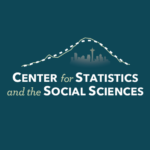 |
*New* Sign up to join the Early Career listserv!
|
We invite early career faculty affiliates to join our new mailing list, csde_earlycareer. Among other things, this is the way to find out info about our quarterly Early Career Affiliate happy hours, and you won't want to miss those! These will be a great way to meet up with other junior scholars in a fun and casual atmosphere over snacks and drinks. Who counts as early career, you ask? Typically we mean folks who are pre-promotion (i.e. assistant professor or equivalent), but we're not strict! Join the list here (Please note - this is for faculty only - we are strict about that. Sorry, all others!)
(read more) |
 |
Fall 2024 CSDE Computational Demography Working Group Talks (10/9/24-12/4/24)
|
In Fall 2024, CDWG is co-hosting weekly seminars with the Max Planck Institute for Demographic Research (MPIDR). Researchers from both institutions will meet in hybrid to discuss novel data, methods, and applications of demographic and social science research. Example talks include The Structure of Opportunity and Wage Mobility by Dr. Michael Schultz, and Differentiating Emigration from Return Migration in Digital Trace Data: A case study of scholarly migration by Dr. Aliakbar Akbaritabar.
(read more)
|
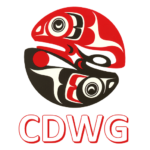 |
CSSS Travel Grant Applications Now Open (Due 11/5/24)
|
CSSS offers a limited number of grants for graduate and undergraduate students and postdoctoral researchers working with CSSS faculty affiliates to cover expenses associated with presenting research at conferences and attending workshops or courses.
These grants are awarded on a competitive basis after review by the CSSS Executive Committee. Preference is given to proposals which advance the long-term goals of CSSS, including: research in social statistics and quantitative methods in the social sciences,
(read more)
|
 |
*New* UW Q Center Queer Mentoring and Peer Program (Apply by 11/6/2024)
|
The Queer Mentoring and Peer Program (QMPP) provides a safe, affirming, and exciting environment in which a mentee's sexual orientation, gender identity, and gender expression is supported and celebrated by an educated and experienced mentor. Apply here to be a mentee, peer, or mentor.
(read more) |
 |
NASA Transform to Open Science Training (11/5 and 11/7/24)
|
Taught by Cameron Riddell & James Powell (Don’t Use This Code) and organized as part of the NASA Transform to Open Science training initiative, this workshop is a wonderful and comprehensive introduction to Open Science principles and practices in data science and for quantitative research in general.
The target audience is graduate students in their first or second year, or those with little exposure to the principles and practices that enable open and reproducible science when analyzing data and writing code.
(read more) |
 |
2025 National Academy of Education – Spencer Postdoctoral Fellowships: Accepting Applications (Due 11/7/24)
|
The Postdoctoral Fellowship supports early-career scholars working in critical areas of educational scholarship. Fellows will receive $70,000 for one academic year of research, or $35,000 for each of two contiguous years, working half-time. Fellows attend professional development retreats and receive mentorship from NAEd members and other senior scholars in their field. Applicants must have had their PhD, EdD, or equivalent research degree conferred between January 1, 2019, and December 31, 2023, to be eligible to apply this year.
(read more) |
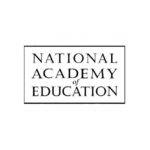 |
*New* CSDE Workshop: Navigating the Job Market (11/13/24)
|
In this Professional Development Workshop, CSDE will host a panel of individuals who have been on the job market recently, landing in both academic and non-academic positions, as well as those who have been a part of hiring committees. While we will have some planned topics of discussion, please come prepared with questions for our panel so that you can feel as prepared as possible as you enter the job market! We will announce our panel members closer to the event date.
(read more) |
 |
*New* Stephen Katz to Deliver Lecture on the Crisis of Population Aging (11/13/24)
|
On Wednesday, November 13th, CSDE is co-sponsoring a presentation from Stephen Katz (Trent University) entitled “From Demography to Kinship: The Crisis of Population Aging” with the Simpson Center for the Humanities. The event will take place at 3:30pm in Room 202 of the Communications Building (CMU). Learn more about the lecture here.
(read more) |
 |
eScience Data Science and AI Accelerator (proposals due 11/11/24)
|
Would 4 hours, 4 days, 4 weeks, or 4 months collaborating with a data scientist accelerate your research to the next level?
Then check out the eScience Institute’s new Data Science and AI Accelerator. We are looking for projects from any research area that would benefit from collaboration with our team of data scientists on data intensive and AI approaches, such as machine learning, scalable data management, statistical analysis, data visualization, open-source software development, and cloud and scalable computing. We support projects that vary greatly in terms of their methods, scope, maturity, and area of application.
(read more) |
 |
Cultivating Connections for Community Engagement (UW tri-campus): Fall Quarter Community of Practice (save the date for 11/15/24)
|
SAVE THE DATE: Cultivating Connections for Community Engagement: Fall Quarter Community of Practice
- When/Where: Friday November 15th, 11am-12:30PM via Zoom (link)
- Who: Faculty and staff from Bothell, Seattle or Tacoma campus who are interested in community-engaged research and/or learning
- Why: To connect with faculty and staff from all 3 campuses who practice, support, or are interested in community engagement; to explore what’s happening across the UW in this space; and to generate ideas and share perspectives for building the university’s capacity for community-engaged scholarship, teaching and learning.
(read more) |
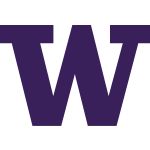 |
IES Announces New Request for Applications for the Special Education Dissertation Research Fellowship Program (Application Deadline 11/14/24)
|
The National Center for Special Education Research released a new Fiscal Year 2025 grant competition.
Special Education Dissertation Research Fellowship Program (84.324G)
This program seeks to broaden opportunities for emerging researchers to engage with IES and conduct high-quality research related to learners with or at risk for disabilities. NCSER will provide financial support for advanced doctoral students—under the guidance of a sponsor at their university—to conduct research in understudied areas related to learners, their families, practitioners, and policymakers.
- The application deadline is November 14, 2024.
(read more) |
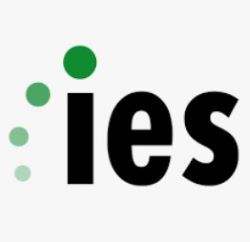 |
*New* Call for Proposals: Cross Pacific AI Initiative (due 11/15/24)
|
The University of Washington, the University of Tsukuba in Japan, Amazon and NVIDIA recently announced the The Cross-Pacific AI Initiative (X-PAI). Established with the support of the US and Japanese governments in April 2024, X-PAI supports research projects and collaborations, funds fellowships for doctoral and post-doctoral researchers, and promotes community projects. Selected proposals will be funded at $125,000- 400,000/year for two years.
This year's review process will prioritize proposals relating to robotics; health, aging, and longevity; climate and sustainability; improving model AI efficiency; and trustworthy AI. Learn more and apply here.
(read more) |
 |
NIH Now Accepting Extramural Loan Repayment Program Applications (Due 11/21/24)
|
The NIH is now accepting applications for the Extramural Loan Repayment Program (LRP)! Awardees can receive up to $100,000 in qualified educational debt repayment with a two-year award.
To learn more about eligibility requirements, application dates, and the benefits of receiving an LRP award, be sure to visit the LRP website, check out our overview video, and attend one of our upcoming events:
- November 6 – Ask Me Anything
Please note that the deadline to submit your Extramural LRP application is November 21, 2024.
(read more) |
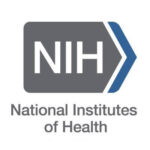 |
*New* Call for Abstracts: Data-Intensive Research Conference (due January 31, 2025)
|
Abstract submissions are now open for the 2025 Data-Intensive Research Conference. The 2025 conference theme is Understanding Health and Population Dynamics through Big Microdata. We seek submissions that use full count census data to examine health and population dynamics. We are particularly interested in projects that link persons, families, or communities across censuses or link full count data to other sources, including the creation of place-based measures or person-level linkages to external data.
(read more) |
 |
Updating the Definition of Sexual and Gender Minority Populations in NIH-Supported Research
|
Statistics indicate that as of 2024, nearly eight percent of the U.S. population identifies as LGBT, with much of this growth attributed to increases in LGBT identification among younger generations. In recent years, policies and laws have been enacted in support of LGBTQI+ communities and their well-being. For example, the 21st Century Cures Act included provisions for the NIH Director to encourage efforts to improve research related to the health of sexual and gender minority (SGM) populations, including to increase participation of SGM populations in NIH-supported clinical research and to facilitate the development of methods for conducting SGM research. SGM people were designated as a population with health disparities for NIH research in 2016 by the Director of the National Institute on Minority Health and Health Disparities in consultation with the Director of the Agency for Healthcare Research and Quality. The NIH SGM health research portfolio has steadily grown and diversified since 2015.
(read more)
|
 |
CSDE Population Research Planning Grants (PRPGs) (Rolling deadline)
|
Population Research Planning Grants (PRPGs) are designed to provide in-kind support and/or funds of up to $25k* to support a wide array of activity types throughout the development of a research project. As part of our mission to complement rather than duplicate other campus opportunities such as the Population Health Initiative seed grants, we will consider funding things activities such as the use of CSDE services beyond the standard allotments for affiliates.
(read more) |
 |
CSDE Matching Support to Supplement On-campus Funding (Rolling deadline)
|
CSDE Matching Support includes in-kind or monetary support to accompany a submission to other on-campus funding mechanism, such as PHI, EarthLab, or Urban@UW. All projects must have a CSDE affiliate who is UW faculty and is listed as a PI or co-PI, with any number of other collaborators. Note that we require (PRPGs) or strongly suggest (matching funds) contacting either Development Core Director (Steven Goodreau) or CSDE Director (Sara Curran) to discuss possibilities for your specific proposal before submission.
(read more) |
 |
NSF: Proposals Impacting Tribal Nation Resources & Interests
|
As of 5/20/2024, NSF proposals that may impact the resources or interests of a federally recognized Tribal Nation will not be awarded by NSF without prior written approval from the official(s) designated by the relevant Tribal Nation(s).
Proposers must:
- Seek guidance from the potentially impacted Tribal Nation on activities that require review and prior approval from that Tribal Nation’s authorized designee.
- Submit a written request to the relevant Tribal Nation (based on their guidance), for approval to carry out the proposed activity that requires their review and approval.
- Complete the checkbox for “Potential Impacts on Tribal Nations” on the Cover Sheet. Note, lead organizations are responsible for this on collaborative proposals & proposals with subawards considered a single unified project.
- Upload one of the following into "Other supplementary documents" of Research.gov:
- a copy of the written request to the relevant Tribal Nation to carry out any proposed activity/activities that may require prior approval from them
- written confirmation from the Tribal Nation(s) that review and approval is not required
- a copy of relevant Tribal Nation approval
(read more)
|
 |
Overview of Grant Application and Review Changes for Due Dates on or after January 25, 2025
|
This notice provides the research and research training community an overview of application and peer review changes impacting grant applications submitted for due dates on or after January 25, 2025, including:
- Simplified Review Framework for Most Research Project Grant Applications
- Revisions to the NIH Fellowship Application and Review Process
- Updates to Reference Letter Guidance
- Updates to NRSA Training Grant Applications
- Updated Application Forms (FORMS-I)
- Common Forms for Biographical Sketch and Current and Pending (Other) Support
Although each of these initiatives has specific goals, they are all meant to simplify, clarify, and/or promote greater fairness towards a level playing field for applicants throughout the application and review processes.
(read more) |
 |
|
|

